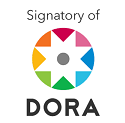Service innovation and customer experience in coffee shops in Manta. Case study
Abstract
This study analyzes the influence of service innovation on customer satisfaction in the SAMOR chocolate cafeteria, located in Manta, Ecuador. Using an analytical-synthetic approach and a non-experimental cross-sectional design, several key dimensions such as product innovations, service digitalization, sensory experience and sustainability were identified. Surveys, semi-structured interviews and observations were conducted to collect innovative practices and their relationship with customer satisfaction. The results indicate that the most influential variables in customer satisfaction are staff treatment, product quality and presentation, and sensory experience. Although sustainability is valued, its direct impact on customer satisfaction was limited. It is concluded that SAMOR should work on implementing innovative strategies that include technological expectations and customer loyalty.
Downloads
References
Ajila Acuña, E. M. (2022). Análisis de la percepción del cliente para la implementación de la psicología del color en una crepería en el Centro Histórico de Quito, año 2021. [Trabajo de Grado, Pontificia Universidad Católica del Ecuador]. PUCE Repositorio Nacional. https://n9.cl/9s9ew
Anwar, R. S., Ahmed, R. R., Streimikiene, D., Strielkowski, W., & Streimikis, J. (2024). Customer engagement, innovation, and sustainable consumption: Analyzing personalized, innovative, sustainable phygital products. Journal of Innovation & Knowledge, 10(1), 100642. https://doi.org/10.1016/j.jik.2024.100642
Bazurto Macías, M. D. L. Á., Vera Cedeño, J. M., Negrín Sosa, E., & Márquez Bravo, Y. J. (2024). Factores críticos de éxito en la comercialización del maní en asociaciones agro-productivas. Gestio et Productio. Revista Electrónica de Ciencias Gerenciales, 6(11), 4-17. https://doi.org/10.35381/gep.v6i11.150
Echenique Mogrovejo, M. L. (2019). Calidad de servicio y su influencia en la satisfacción del cliente en una pizzería de Lima 2019. [Trabajo de Grado, Universidad Ricardo Palma]. Biblioteca Central. https://n9.cl/x0pvi
Feria Ávila, H., Matilla González, M., y Mantecón Licea, S. (2020). La entrevista y la encuesta: ¿Métodos o técnicas de indagación empírica? Didasc@lia: Didáctica y Educación, 11(3), 62–79. https://n9.cl/9iy3f
Flores Tapia, C. E., & Flores Cevallos, K. L. (2021). Pruebas para comprobar la normalidad de datos en procesos productivos: Anderson-darling, ryan-joiner, shapiro-wilk y kolmogórov-smirnov. Societas, 23(2), 83-106. https://n9.cl/3uk0j9
Instituto Nacional de Estadísticas y Censo. (2022). Ecuador Data Analytics. Censo Ecuador. https://censoecuador.ecudatanalytics.com/
Kammerer, M., y Murgas, B. (2024). La innovación tecnológica desde un enfoque de dinámica de sistema. Región Científica, 3(1), 2024217. https://doi.org/10.58763/rc2024217
Kelley, K., & Bolin, J. H. H. (2013). Multiple regression. In T. Teo (Ed.), Handbook of quantitative methods for educational research (pp. 71-101). SensePublishers. https://doi.org/10.1007/978-94-6209-404-8_4
Kumar, V. (2024). Customer valuation theory. In Valuing customer engagement: Strategies to measure and maximize profitability (pp. 15–35). Springer Nature Switzerland. https://doi.org/10.1007/978-3-031-43296-5_2
Merino Soto, C., & Lautenschlager, G. J. (2003). Comparación Estadística de la Confiabilidad Alfa de Cronbach: Aplicaciones en la Medición Educacional y Psicológica. Revista de Psicología, XII(2), 127-136. https://n9.cl/u5b822
Monroy Ceseña, M. A. (2022). Bibliometric study of the innovation and marketing of services in the restaurant industry. Inquietud Empresarial, 22(2), 15–33. https://n9.cl/a3v2f
Negrín Sosa, E., Bravo Macias, C. C., Piquera García, L., & Montesdeoca Calderón, M. G. (2016). Propuesta de un procedimiento para evaluar el nivel de motivación y satisfacción de los trabajadores de una institución bancaria. Revista Uniandes Episteme, 3(4), 476–496. https://n9.cl/fg8tjb
Once, I., Arévalo, L., Bazán, T., y Espinoza, F. (2023). Covid-19 na dinâmica de inovação do empreendedorismo de serviços de turismo em Cuenca, Equador. Ateliê Do Turismo, 7(1), 68-95. https://doi.org/10.55028/at.v7i1.17799
Poveda Anchundia, T., & Morocho Valarezo, K. (2023). Incidencia de las estrategias de social media marketing en la fidelización de clientes de restaurantes en fase inicial en Guayaquil. Revista De Investigaciones De La Universidad Le Cordon Bleu, 10(1), 94-103. https://doi.org/10.36955/RIULCB.2023v10n1.009
Rodríguez-Chávez, M. I., Muñoz-Cabrera, J. C., & Negrin-Sosa, E. (2025). Diagnóstico de la gestión de servicios hoteleros en Manabí, Ecuador. Revista Arbitrada Interdisciplinaria Koinonía, 10(19), 134-148. https://n9.cl/cc5btb
Sablatzky, T. (2022). The Delphi Method. Hypothesis: Research Journal for Health Information Professionals, 34(1). https://doi.org/10.18060/26224
Ünal, U., Bağcı, R. B., & Taşçıoğlu, M. (2024). The perfect combination to win the competition: Bringing sustainability and customer experience together. Business Strategy and the Environment, 33(121), 1-19. https://doi.org/10.1002/bse.3728
Zhou, Y., & Yang, X. (2024). The evolution and innovation of marketing strategies in the digital era. Academic Journal of Business & Management, 6(6), 250-255. https://doi.org/10.25236/AJBM.2024.060637
Copyright (c) 2025 Doménica Ariana Moreira-Álava, Mariuxi Viviana Ormaza-Molina, Ernesto Negrín-Sosa

This work is licensed under a Creative Commons Attribution-NonCommercial-ShareAlike 4.0 International License.
CC BY-NC-SA : Esta licencia permite a los reutilizadores distribuir, remezclar, adaptar y construir sobre el material en cualquier medio o formato solo con fines no comerciales, y solo siempre y cuando se dé la atribución al creador. Si remezcla, adapta o construye sobre el material, debe licenciar el material modificado bajo términos idénticos.
URL de OAI-PMH: https://iieakoinonia.org/ojs3/index.php/gestioep/oai














